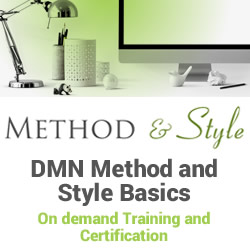Data mastery: An opportunity that’s largely overlooked by consumer products and retail organizations
Blog: Capgemini CTO Blog
A Q&A with Kees Jacobs, Head of Insights & Data, Consumer Products & Retail, Capgemini.
Organizations across business sectors are striving to unlock their data to derive value. Transforming into a data-powered enterprise is a challenge for any modern organization but especially so for those in the Consumer Products & Retail (CPR) sector.
Kees Jacobs says the biggest challenge is the amount of data CPR companies generate – but that’s also their biggest opportunity. As the global head of Insights & Data for Consumer Products & Retail at Capgemini, Jacobs helps clients leverage their data to create competitive advantages, optimize operations, be more responsive to consumer demands for new products and services, and become more resilient. He explains how CPR companies can become data masters and why they should undertake the journey. He also offers insight into what’s holding them back and how to move forward.
Why should CPR companies care about deriving value from their data?
Jacobs: The most critical element for any modern organization that deals with consumers is the ability to anticipate what’s happening – to understand how and why the behavior of consumers is changing. Those insights can create improvements throughout a CPR company’s operation – in their stores, in their supply lines and distribution channels, in their pricing and promotions strategies, and even in their R&D.
Is this about anticipating consumer trends and capitalizing on them?
Jacobs: It’s more than that. As an example, over the past year we’ve all witnessed how important it is for companies to be resilient, flexible, and responsive to changing consumer behaviors. The global COVID-19 pandemic accelerated changes already taking place, such as the surge in digital commerce. It also prompted significant changes for retailers, such as the widespread adoption of curbside pickup.
Other changes are not as sudden. Sustainability is a good example. It’s not a trend – it’s a major change in consumer behavior that occurred over time. Today’s shoppers want sustainable choices. Consumer goods retailers are responding to this demand, and it’s a big growth area. But the retailers didn’t instigate this: Their customers drove it.
Changes can even be generational. Ten years ago, we saw a new generation of consumers emerging. They were tech-savvy and socially responsible, but did not have much buying power. Older generations did have buying power, but were not as aware of things such as digital channels. Today, that younger generation has become more affluent, while their parents and grandparents are more comfortable online. Those changes have huge implications for CPR companies.
Whether it’s COVID-19, sustainability, or something else, companies need to recognize an issue before they can respond to it. Today, companies can spot those changing behaviors relatively quickly by analyzing their own data. Data mastery allows companies to gain insights into such changes, and use those insights to adapt how they engage with consumers.
Becoming a data-driven business can help a CPR company grow its top line – by better serving consumers – at the same time as it helps the company improve the bottom line by doing things more efficiently.
Our research bears this out. In 2020, we surveyed more than 200 CPR organizations for The Age of Insight report, which examines how companies in the sector can create, process, and leverage data proactively. The companies that have become data masters are reaping significant rewards: 73 percent of them derive quantifiable value from their data and deliver a 30 percent higher operating profit margin compared to the CPR industry average.
With all these compelling reasons for CPR companies to undertake this transformation, are they doing that?
Jacobs: As a group, I would say CPR companies are behind those in other sectors. Our research discovered that just 16 percent of consumer products organizations qualify as data masters – and that drops to just six percent for retailers.
But there’s a very good reason for this. Companies in the CPR sector generate a tremendous amount of data – much more data than companies that, for example, deal strictly with B2B commerce. It requires huge amounts of processing power to leverage this data at scale. Running a proof-of-concept on pricing analytics or in-store activation analytics is doable, but doing that on a continuous basis, across the enterprise, with all the data that they generate – that can feel like an overwhelming task.
If the task is so large, how do companies get started?
Jacobs: Companies just starting on the journey attempt to move towards data mastery by one of two methods. Some companies want to focus on use cases by having data scientists employ AI tools to do analytics. Other companies take the second route, which is to focus first on ensuring that the data is sound, trusted, reliable, and secure.
Capgemini’s recommendation is to address both issues, simultaneously. A company must have solid data foundations: These are the tools and technologies that allow the enterprise to properly leverage its data. At the same time, there’s no point in having high-quality data if it doesn’t have meaning or purpose. So the company must also embrace the correct data behaviors: The organization’s DNA – its people, processes, skills, and culture – must align in favor of data-powered decision making.
That sounds like a major transformation…
Jacobs: It is! To succeed, companies need to think big. That requires ambition, top-down leadership, and the right mobilization from the bottom up. At the same time, they need to start small – to build some early successes.
That’s why we developed Capgemini Retail & Consumer Products’ OutPerform. It’s designed to help our clients navigate what we call the “corridor of change” – the path through data foundations and data behaviors towards data mastery. OutPerform lets clients embark on the journey with confidence by rapidly delivering purposeful outcomes while laying the foundation for sustainable change. With this solution, we help companies grow, step by step, by making sure that every time they deliver value – whether that’s on the business side or on the data side – they’re able to grow it and scale it.
The destination is definitely worth the trip. Data mastery is a huge opportunity for companies in the consumer products and retail sector. They can do much more with their data than companies in other sectors can – simply because they have so much of it.
Leave a Comment
You must be logged in to post a comment.








